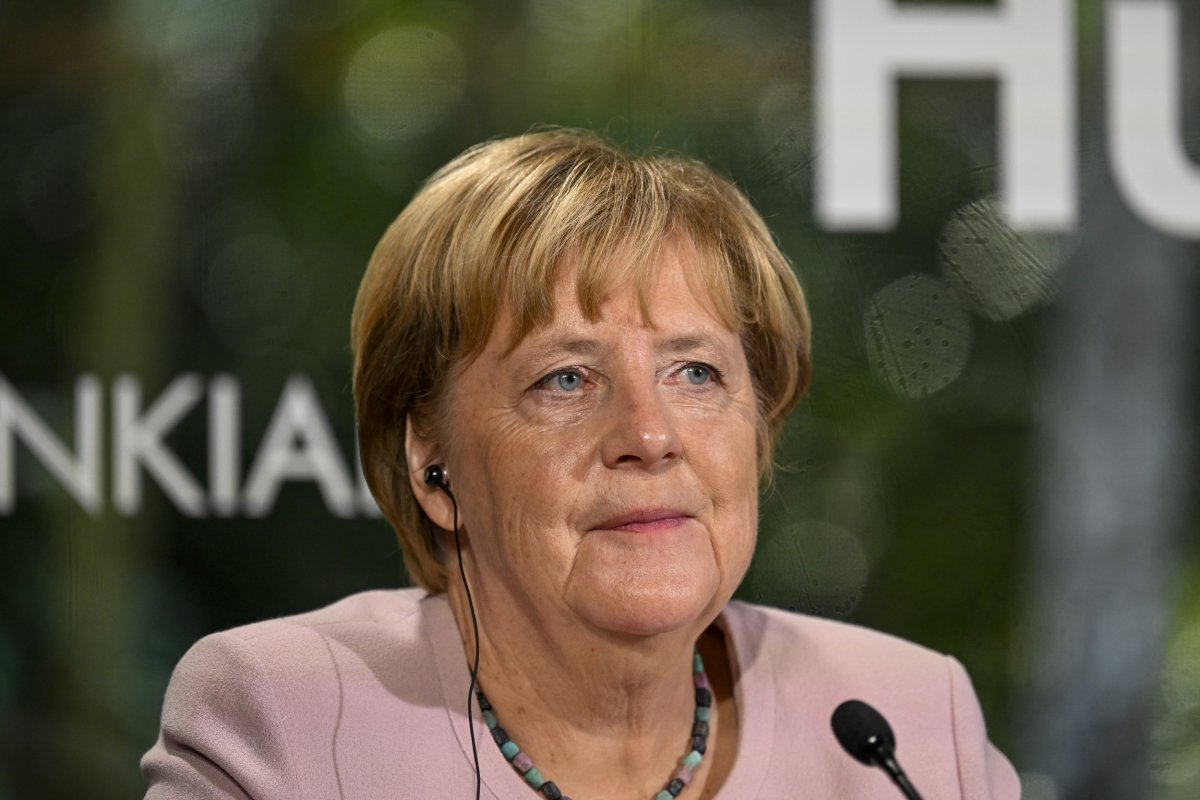Remember Angela Merkel? Once called leader of the free world, the fanfare when she retired was deafening. Now, it's hard to think of a political figure whose star has faded so much without being sent to prison. Merkel's legacy in Germany has received blow after blow and, though she only left the stage a year ago, she already seems like a relic of a bygone era.
As the world's fourth-largest economy, Germany had some of the soundest finances and most stable governance in the world in her 16 years in power. She also did an admirable job of keeping the far-right out of the mainstream, unlike what has happened in Sweden and Italy. But she didn't put the country's many assets to good use. Inequality soared, public investment dwindled and the country stagnated, with economists warning of a "lost decade." Germany under Merkel was a boring party, but we are now dealing with a painful hangover in the form of the damage her policies did to Europe's security.
Merkel backed the Nord Stream 2 gas pipeline between Russia and Germany to the hilt, even after Putin showed his imperialistic intentions by annexing Crimea. Whether through self-delusion or myopia, she decided to make energy-hungry Germany dependent on the whims of a murderous dictator, against the protests of eastern European allies who knew from experience what it means to be controlled by Russia.

Last month the Green Party, part of Germany's government coalition and the only party which has been consistently tough on Russia, voted at their party conference for an investigation into Nord Stream. And though many saw Merkel as incorruptible, corruption flourished under her watch. I reported for The Times of London that Gazprom were intimately involved in decision-making and communications, asking a state leader if they could listen in on her conversations with journalists and drawing up her public relations plan to blame any worries on the Americans who only wanted to sell their fracking gas.
Energy policy has to be the single biggest failure of Merkel's leadership. A decade ago, Germany had one of the best renewable energy sectors in the world, with Energiewende joining kindergarten and blitzkrieg as rare German words that make it directly into English, and Merkel was dubbed the climate chancellor. But Merkel's party, the Christian Democrats, thought they could win rural votes by capping solar and wind expansion, leading to over 100,000 lost jobs in the sector, with usage of dirty lignite coal actually rising in the last decade of her Chancellorship.
Her successor, Olaf Scholz, used an executive order to keep nuclear power plants running into next year, overturning her 2011 decision to phase out nuclear before coal (and use Russian gas as a "bridging technology"). This knee jerk move, a U-turn of a U-turn, was made in the wake of the Fukushima disaster, belying Merkel's carefully crafted image of "anti-populism."
But it's not just energy security. Merkel liked to portray herself as above the fray of party politics, but she knew her political fate was tied to that of her party, so she put party above country too many times, giving crucial jobs to people who were unqualified, but happened to carry the same party book. Her cybersecurity chief was fired in October for close business links to Russia, as revealed on a German satirical news show. This is just a few years after the top German spy chief Hans Georg-Maassen resigned for being too close to the far-right Alternative-fur-Deutschland and spreading conspiracy theories.
And though the country finances are solid as a whole, crucial parts of infrastructure barely function thanks to her ideologically driven austerity policies. Apart from the infamously cash-strapped military, which needed a 100 billion euro bump to get even close to fighting fit, the country's digitalization is antediluvian, with fax machines still commonplace in government offices, e-signatures banned and large swathes of the country without cell phone coverage. Merkel hasn't been so thrifty with her own post-chancellery requirements, recently being called out by the government for her expensive nine-person taxpayer-funded personal office.
Meanwhile, there are fears the outdated energy grid is structurally unable to provide industry with what they need to keep the engine room of Europe running. And no, the trains do not run on time.
Merkel must be given credit for her handling of the financial crisis, eurozone crisis, and Covid-19 pandemic—and her policy of accepting Syrian refugees was strikingly humane. She got the ship through choppy waters with a steady hand on the tiller, but in the aftermath it's clear Germany is adrift, and in case of a cold winter, without the Russian gas they've relied on for decades, may hit the ice.
James Jackson is a Berlin-based journalist and commentator covering Germany and Central Eastern Europe. He is a former staff journalist at Deutsche Welle, writes for The BBC, Time Magazine and Times of London among others.
The views expressed in this article are the writer's own.
Uncommon Knowledge
Newsweek is committed to challenging conventional wisdom and finding connections in the search for common ground.
Newsweek is committed to challenging conventional wisdom and finding connections in the search for common ground.
About the writer
To read how Newsweek uses AI as a newsroom tool, Click here.








